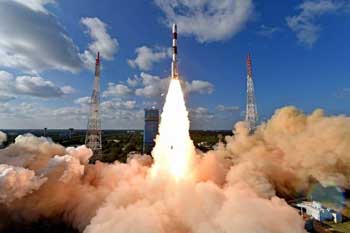– Dr.
Shafalika SB –
Every woman is familiar with the stomach pain that comes with their monthly periods as the uterus contracts and relaxes to release blood and tissue. However, if you are suffering from unusual abdominal pain and lower back pain combined with irregular periods, be warned, this is a red flag that could indicate the development of ovarian cysts.
Ovarian cysts are fluid-filled sacs that can form in or around the ovaries. They are actually very common and mostly form naturally around the time of ovulation. Though in many cases ovarian cysts does not show any symptoms, if the cysts are larger, women may experience severe abdomen pain and lower back pain.
Ovarian cysts can be of different sizes. These develop on the inner walls of the ovaries and are commonly found in all age group of women. In most cases, ovarian cysts do not present any discomfort or pain and may disappear in few months without any treatment. However, in some women they may not go away and starts to grow and becomes bigger over time. This is a cause of concern.
Causes of ovarian cysts
Different types of cysts can develop in the ovaries. Most ovarian cysts develop as a result of menstrual cycle. The most common ovarian cysts are called functional cysts, these could either be a follicular cyst (when a cyst forms in one of the follicles during a menstrual cycle because the egg from the follicle hasn’t been released properly or the follicle hasn’t ruptured properly) and the other is a corpus luteum cyst (which is when fluid accumulates inside a follicle and continues to grow).
The other types of cysts that could develop are called cystadenomas or dermoid cysts, which could grow to an extremely large size and disrupt the position of the ovary which can lead to a painful condition called ovarian torsion. If the cyst ruptures, this could also lead to further complications.
The other common type is endometriotic /chocolate cysts which are extremely painful cycles & also cause severe pain before & after menstrual cycles. They also are the most important cause of infertility.
Symptoms of ovarian cysts
Often ovarian cysts do not cause any pain. However, if the cysts start growing then the person may experience the following symptoms:
- bloating
- painful bowel movements
- pelvic pain before or during the menstrual cycle
- painful intercourse
- pain in the lower back or thighs
- breast tenderness
- nausea and vomiting
Ovarian cysts can sometime burst and lead to severe complications.
Who are more susceptible to develop ovarian cysts?
Your risk of developing an ovarian cyst is heightened by:
- Hormonal problems.These include taking the fertility drug clomiphene (Clomid), which is used to cause you to ovulate.
- Sometimes, the cyst that forms when you ovulate stays on your ovary throughout your pregnancy.
- This condition causes uterine endometrial cells to grow outside your uterus. Some of the tissue can attach to your ovary and form a growth.
- A severe pelvic infection.If the infection spreads to the ovaries, it can cause cysts.
- A previous ovarian cyst.If you’ve had one, you’re likely to develop more.
When to worry?
If you are experiencing symptoms such as unexplainable changes in the periods cycles, sudden and extreme pain in the abdomen along with fever and painful bowel movement, it is suggested to visit your gynaecologist and get checked for ovarian cysts. Typically, the older you get, the higher is the risk of these ovarian cysts turning cancerous. Regardless of your age, if you start experiencing any of the above symptoms, seek expert advice.
While there is no one specific cause that leads to an ovarian cysts turning dangerous for health, lifestyle factors may play a role in increasing the risk of developing one. It is advised that women pay attention to their overall and gynaecological health at an early age. Keeping the hormonal levels stable and balanced by maintaining a healthy weight, avoiding unhealthy habits such as a processed-food diet, smoking, and over-consumption of alcohol. For women who are undergoing infertility treatments, discuss with your doctor for the best medications for you as certain medicines can increase the formation of ovarian cysts.
Dr. Shafalika S B
Author & Gynecologist
Dr Shafalika is one of the very few experienced Gynae laparoscopic surgeon who is exclusively practising Gynae Laparoscopy. She has performed thousands of Major laparoscopic procedures including Hysterectomy, fibroid removal even in large and difficult fibroid’s,endometriosis,large ovarian cysts to name a few.She has performed Laparoscopy in many complicated situations.
Dr. Shafalika S B, Consultant – Gynaec Laparoscopic Surgeon, Columbia Asia Referral Hospital Yeshwanthpur.
Disclaimer : The views expressed by the author in this feature are entirely her own and do not necessarily reflect the views of INVC NEWS.


 Shafalika SB –
Shafalika SB – 











